The best tool I use as an Engineer – the mobile phone
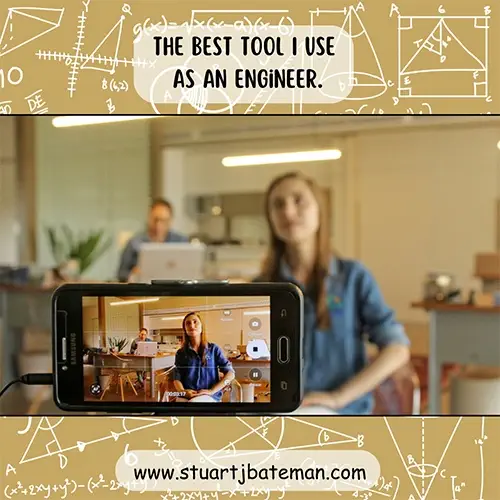
“The idea is to make it as easy as possible in the moment to do things that payoff in the long run.”- Atomic habits
Using the mobile phone to increase my productivity as an engineer
So as an active Lean (agent), I make it a point to be as pro-active as I can be and save time in my own activities (basically lead by example). One of the methods I employ is making full use of technology in this case the humble mobile phone (I know I was shocked), while learning about Lean and conducting the activities involved, I always had several tools on me:
- Pen & Paper
- Camera
- Torch
- Stopwatch
- Tape measure
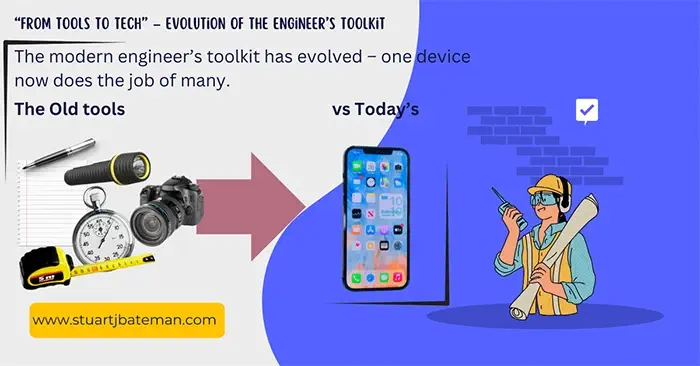
Now if this were the 80’s then there would be no issue here, but it’s not and I can’t wear my Marty McFly body warmer unfortunately. However, technology has allowed us to miniaturise these tools so that one useful device remains that literally people can’t put down…. The Tricorder…. oh, sorry the mobile phone.
Nope, no rant or raving, the common phone today is packed full of useful sensors and tools that colleges and universities are using them in cube sats. Combine this with the ability to program apps to make full use of the sensors and input/output functions and we have the current Swiss army knife of the modern world.
There are Pro’s and Con’s coming as I wanted to give a balanced view, what this tool gives it also takes.
How do I use it? Well, I still carry my pen and paper around for on-the-spot notes/ calcs and designs as it’s hard to beat (much faster but without the connectivity). Every tool I mentioned above there is an equivalent on an app (just depends on how much you pay to a fair degree as to how good they are, unless a company like Google decides to develop an app and distribute it for nothing which has reasonable quality).
When I use the tools I’m observing processes to understand the situation so I can describe it better using a VSM.
Back to the apps on my mobile phone
- Photos: simple and fast to set reminders by emailing pictures to myself / colleague or contractor to illustrate what is going on down on the shop floor. (Gemba) Scanning documents into OneNote / Dropbox or email.
- Emails: Again, to set reminders, arrange meetings, notes, set myself tasks or to send a quick note to someone after an ad-hoc meeting.
- Torch: LED back lighting combine with the camera I’ve been able to take photos of defects or areas of interest to show others or drop onto the PC for software to enhance. Again, this helps with finding the clues as to wrong the problem route cause is.
- Calculator: Yes, I am an engineer, mental arithmetic isn’t my thing.
- Stopwatch: The standard mobile phone have stopwatches on their clock app, but for Lean we can use dedicated apps created to capture and give more information like Mean/Median/ Standard deviation etc… the details we need before getting to a PC.
- Tape measure: There are apps that use the phones sensors to gauge distances, but I doubt their reliability, I tend to measure the small by taking a photo of the object alongside a rule or object of known size, later to scale in software like Fusion 360 to get the dimensions I’m after.
Other notable apps on my phone:
Skype/Zoom/Teams/Dropbox/OneNote/Notion/Rocket Book/QR reader/Barcodes/WhatsApp (for faster messaging of colleagues).
These are mainly to connect to others in the company from wherever I am so we can discuss improvement/resources/issues/processes. These apps magnify the mobile phone abilities and yours to be effective in storing and transferring data/information, it’s funny to think this revolution only started roughly in 2007 when Steve Jobs gave us the iPhone which is basically a mini-PC.
I once had a manager I reported to in 2011 (Stannah) who stated that his mobile phone was his single best tool being able to call anyone when needed to set tasks or resolve problems directly and come up with resolutions faster.
It’s no secret my phone is a tool which can adapt to whatever I’m doing (since I also use it for Astrophotography while on holidays). – Hint check out my Astro photos!
Having searched the internet there are a lot of papers/studies done that talk about the negative affects of mobiles and the benefits to them is mixed with workers balancing work/life on them, but let’s look at these Pro’s and Con’s to discuss those points, as always, I encourage you to look up this information and studies to make your own conclusions.
Con’s (basic Google search and also form sites ResearchGate, ScienceDirect, PubMed, Eric, sciencepublishinggroup and Academia)
- Distraction
- Disruption to work flow
- Difficultly separating work from private life
- Procrastination
- Social Media use
- Texting others (again distraction)
- Walking hazards
- Lost productivity
- Source of conflict
- Loss of focus
- Privacy issues
These are all self-evident.
The Pro’s I’ve listed/talked about before, but apart from using it in my work life I also use it as my ‘always learning’ tool, using apps like:
Anki/Brilliant/Duolingo/Audible/Skillshare/Podcasts/Crashcourse/YouTube/Mimo and others I have used to develop myself daily.
Let’s not forget these are PC’s and for the most part the android (sorry I’m not an iPhone lover) can connect to various devices via Bluetooth/ USB / WIFI to give added benefits like the Endoscope that I use in investigations. Hey for the Six sigma people there are even free apps to help with that method (but I haven’t investigated into that side yet and I’m stilling learning about tools that mimic more expensive calibrated tooling, but I stress they aren’t calibrated but they will give you an idea and some data to work with).
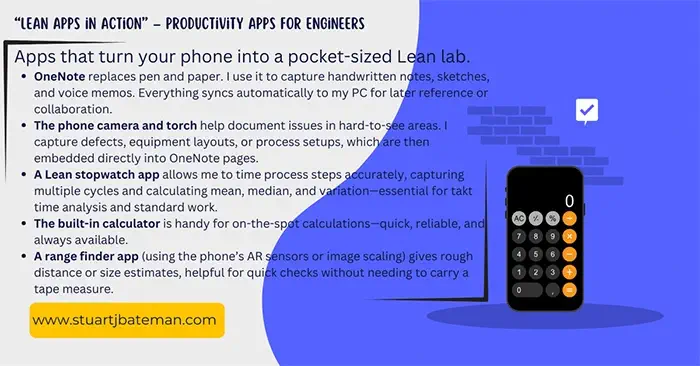
I wanted to finish by demonstrating how I use my phone on a daily basis: (Check out my day in the life of a Production Engineer)
- Start my day with Anki-droid followed by Duolingo
- At the daily MRB meetings I’m using my camera and emails to disseminate what’s being discovered to suppliers/departments and managers to start investigations.
- Any notes from the books I’m reading (work learning) get written in OneNote and cross reference with any subject that’s related.
- Any ad-hoc meetings or discussion that I get tasks or need to remember details from get emailed to myself or onto a note app
- Apps like (Android again)
- App-To Do list
- Google and Outlook calendars
- Apps like (Android again)
- Ideas that spring to mind go on emails or OneNote.
- Photos at work go on Dropbox that appear on my desk when I get there, quick and easy for SOP’s or issues.
- I do use Rocket book pages (free downloads from their site) as SPC charts (there are some interesting YouTube videos showing how to convert the format to whatever you need ), so I have the operators on the shopfloor take photos of the SPC charts that go automatically to a dedicated email address. (The actually Rocket book is great, I’ll talk about that at some point, as it doesn’t like the engineer’s world).
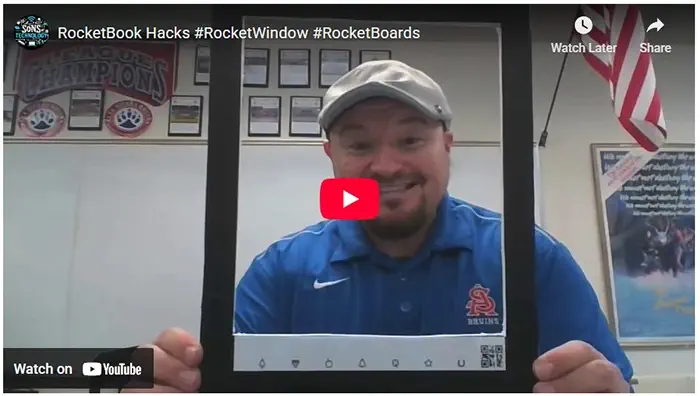
- Actual meetings, if people are happy I record what’s said, else it’s emailing notes to myself.
- WhatsApp if used correctly is great at quickly getting hold of operators/managers about the business but please be aware of security policies your company might have. (Just make sure they are not on holiday first)
- Remote connect to desktop – does allow me to access files while on business trips and I don’t have the laptop.
- Camera and LED backlight for taking photos of products that require attention then emailing about the business as needed.
- Skype/Teams – meetings when I’m not at my desk.
- When I’m at home then I use the Brilliant app for learning.
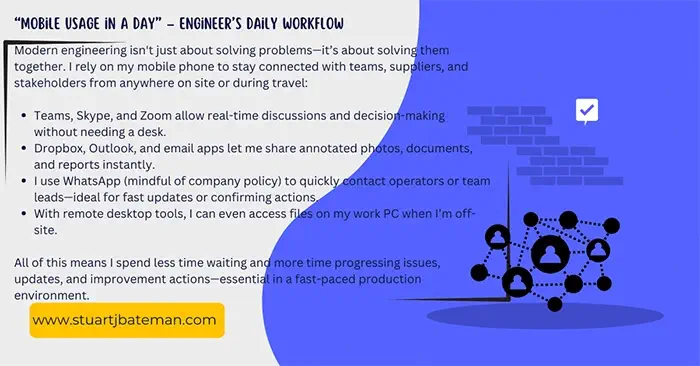
Note worthy
- Time study apps – draws graphs and calculates mean + std deviation in real time – (Time study stopwatch)
- SPC apps – again gives my information while recording it – (QCSPCCHART & Process Control)
- VBA learning apps (mainly for references but MIMO is great for Python)
- Desmos calculator for that scientific calculator that a standard windows one can’t cover (still haven’t found the square root button).
- TeamViewer – If you have a license.
Conclusion what can you get out of using the mobile phone wisely
Researching this topic online has proven difficult, as the itself is bury within a mass of studies regarding the negative affect of mobile phones in general (focus primarily on health concerns from radiation to distraction while driving and ends with the work/non-work boundary being broken due to this technology), plus their negative impact at work. However, the articles online that I have found do not talk about them being used as tool but more about connectivity to others.
From my point of view (if you leave social media out) is that it can be a tool in the workplace and a very useful one too with the amount of specialist applications in creative people’s hands, with the amount of sensors and connectivity too you can really make in-expensive gadgets that can help industry (perhaps this is why Universities and Colleges make CubeSats out of them) be more productive.
You might not like using your new or expensive phone, but there are great mid-range Samsungs for a small cost less than £70 that will do the same job I’ve highlighted here, just swap your sim into it and go!
Resource – (Internal) – Personal Development
Below are links to my 5 part series on Personal development:
- Making mistakes / assumptions and being wrong
- Can you detect Baloney
- First principles thinking
- Do you think it’s better to win?
- The Socratic method – Critical thinking

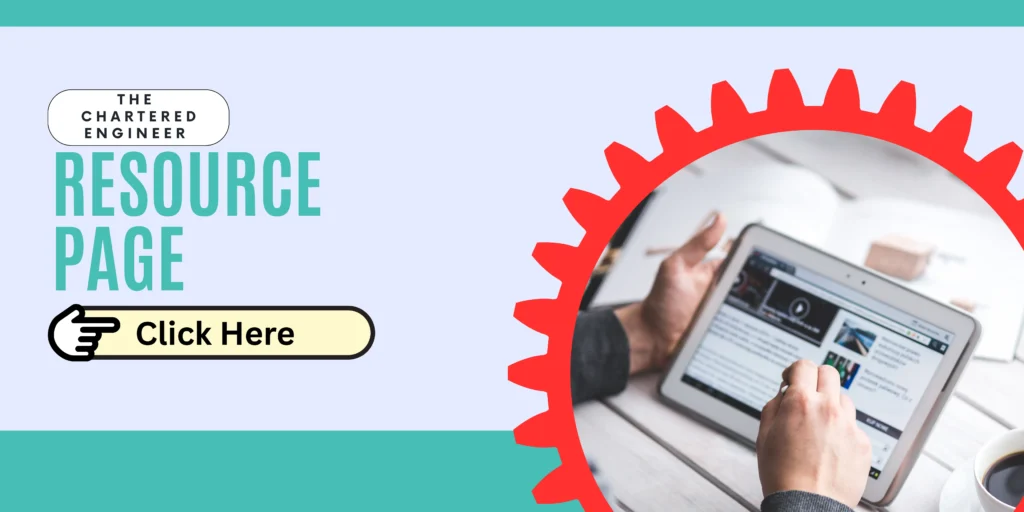
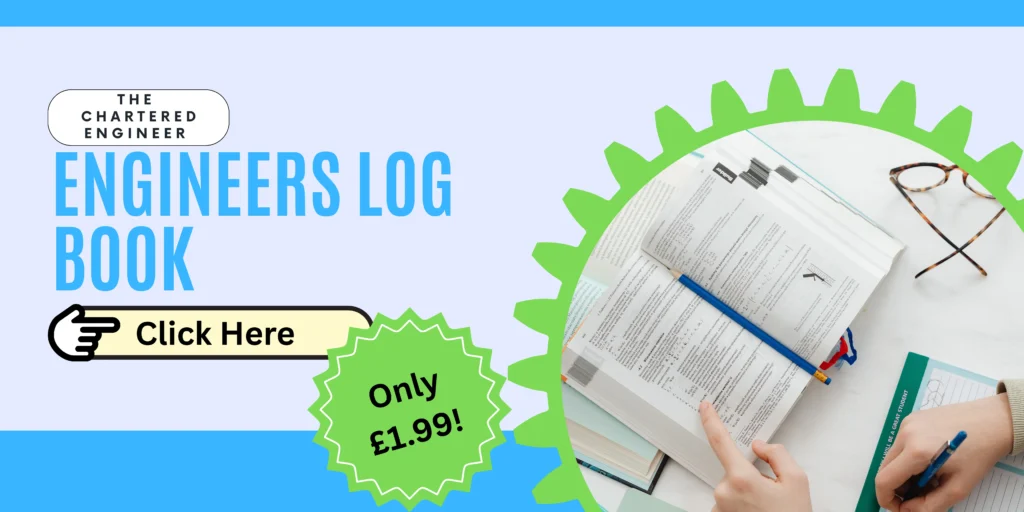
What are your thoughts? Have I covered everything or is there more you know and would like to share?
I’m always learning and improving this site and my blogs, so please feel free to get in touch with me via LinkedIn or this site to discuss any topics I have covered.
If you’re having trouble finding ways to progress check out these sites filled with free learning tools:

